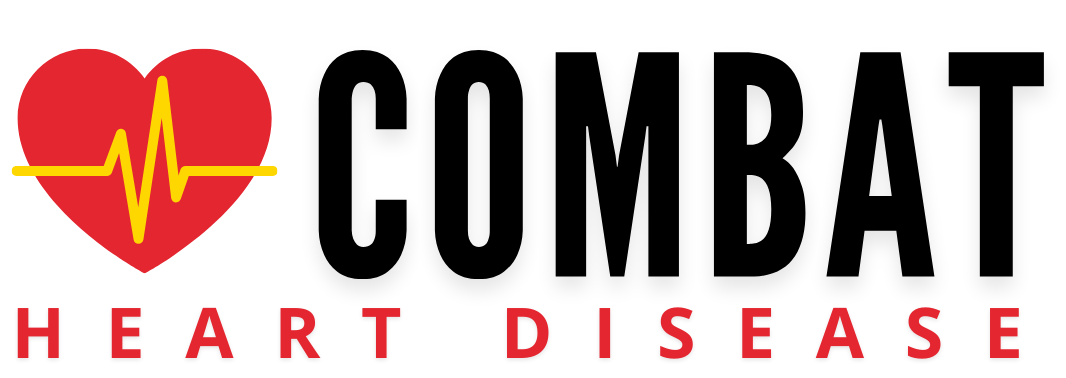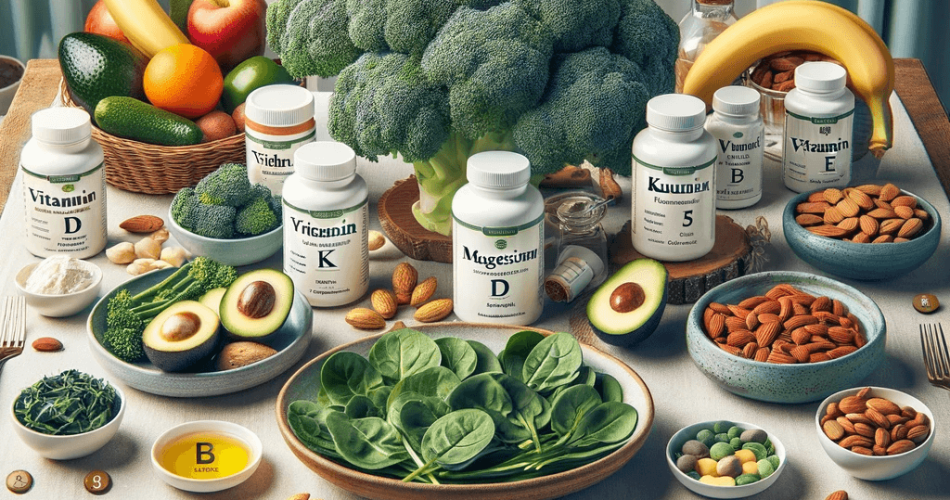Hello everyone, and welcome to our deep dive into heart health! Today, I’m excited to share something that’s not only fascinating but also critical for maintaining a robust heart: the role of vitamins in combating calcium buildup. If you’re like me, passionate about staying heart-healthy, you’ve probably heard about the dangers of calcium accumulating in our arteries. But there’s good news! Nature has provided us with a toolkit of vitamins that can help keep this buildup at bay. So, let’s embark on this journey together and explore how these vitamins can be our allies in the fight against heart disease.
Understanding Calcium Buildup
When we talk about calcium buildup, we’re referring to something medically known as arterial calcification. This isn’t just an abstract medical term; it’s a condition that can creep up silently and pose a significant threat to our heart health. Imagine your arteries, the highways for blood in your body, getting clogged up with calcium deposits. This not only restricts blood flow but also makes the arterial walls stiff, increasing the risk of high blood pressure, heart attacks, and strokes. The scary part? You might not even know it’s happening until it’s quite advanced.
But why does this buildup occur? It’s often a result of a combination of factors, including aging, certain medical conditions, lifestyle choices, and sometimes, a lack of specific nutrients in our diet. This is where our understanding of calcium’s role in the body becomes crucial. While calcium is essential for bone health, its excess in the bloodstream can be detrimental to our arteries. It’s a delicate balance that our body strives to maintain.
The Role of Vitamins in Preventing Calcium Buildup
Now, let’s turn our attention to the superheroes in this story – the vitamins. You might wonder, how can these tiny compounds make a difference against something as significant as calcium buildup? The answer lies in the intricate ways they interact with our body’s biological processes. Vitamins, when present in the right amounts, can help regulate the calcium levels in our bloodstream, ensuring that it goes where it’s needed (like our bones) and stays away from where it can cause harm (like our arteries).
Each vitamin has its unique role. Some, like Vitamin D, help in the proper absorption of calcium from our diet, making sure it’s utilized effectively by our body. Others, like Vitamin K2, play a critical role in directing calcium to our bones and preventing it from depositing in our arteries. Then there are those like Vitamin E and Omega-3 fatty acids, which provide a protective effect against the oxidation of cholesterol – a process that can lead to the development of plaques in our arteries.
7. Vitamin E: A Key Player in Cardiovascular Health
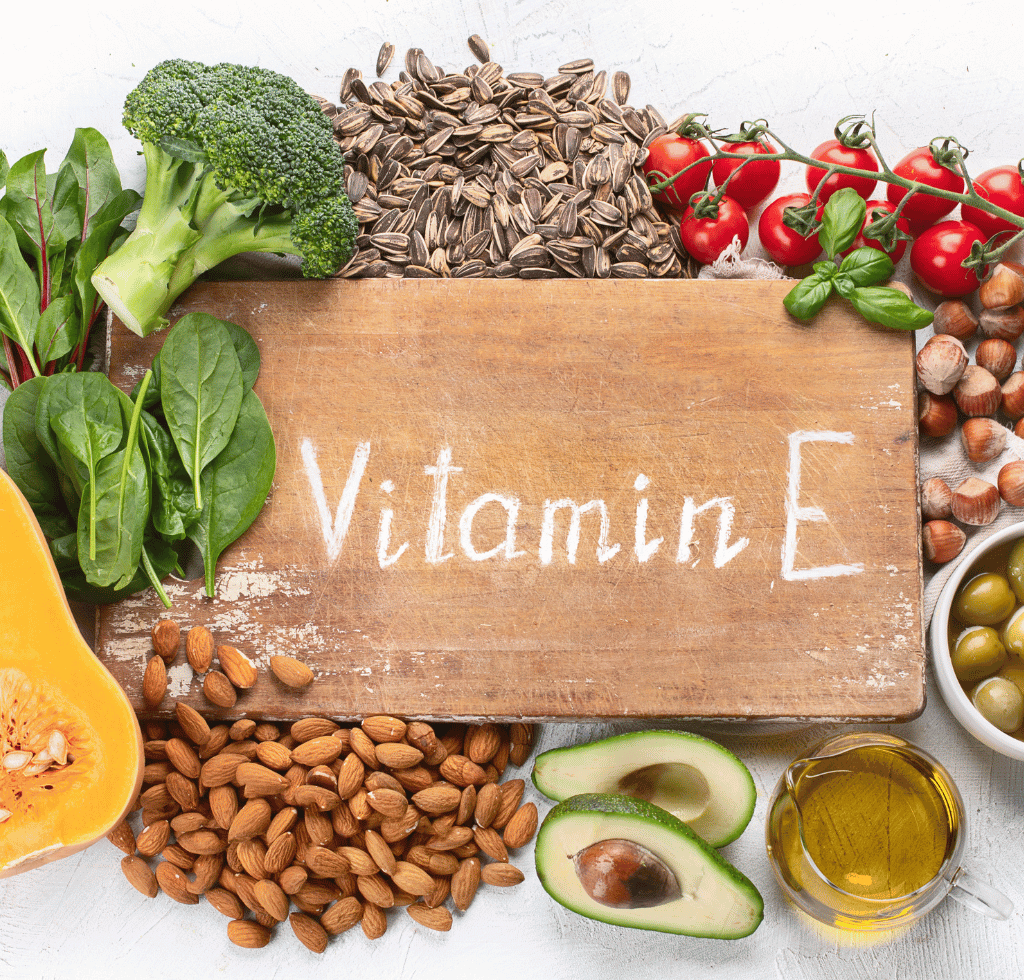
At number 7 on our list, Vitamin E emerges as a critical nutrient for heart health, especially in its role against arterial calcium buildup. Renowned for its antioxidant capabilities, Vitamin E is crucial for maintaining the health of endothelial cells—the cells lining our blood vessels.
This function is paramount in preventing atherosclerosis, a condition characterized by the hardening and narrowing of the arteries due to plaque buildup.
Impact on Endothelial Health
Research, such as the study published in the ‘Journal of the American College of Nutrition,’ illuminates Vitamin E’s significant impact. This particular study revealed that high doses of Vitamin E, up to 400 IU daily, can markedly improve endothelial function in individuals with high cholesterol. This improvement is directly linked to a reduction in the process that leads to calcium plaque formation, showcasing Vitamin E’s pivotal role in cardiovascular protection.
Beyond Preventing Plaque Buildup
However, Vitamin E’s benefits extend far beyond just preventing plaque buildup. It plays an integral role in protecting cell membranes from oxidative stress. This protection is crucial considering oxidative stress’s role in aging and the development of chronic diseases. Ensuring a sufficient intake of Vitamin E is thus not only a strategy against arterial calcification but also a broader approach to combat aging and other health conditions.
Sources and Recommended Intake
The recommended dietary allowance for Vitamin E sits at about 15 mg (or 22.4 IU) for adults. It’s readily available in foods like almonds, with just one ounce providing approximately 7.3 mg, about half of the daily recommended intake. Spinach, avocados, and a variety of seeds and nuts also serve as excellent sources. By incorporating these foods into our diet, we significantly bolster our body’s defense against arterial calcification and other age-related conditions.
6. Omega-3 Fatty Acids: Heart Health Champions
Coming in at number 6 are Omega-3 Fatty Acids, specifically EPA and DHA found in fish oil, which are indispensable for heart health. Their role in reducing arterial inflammation is a critical factor in combating calcium plaque buildup.
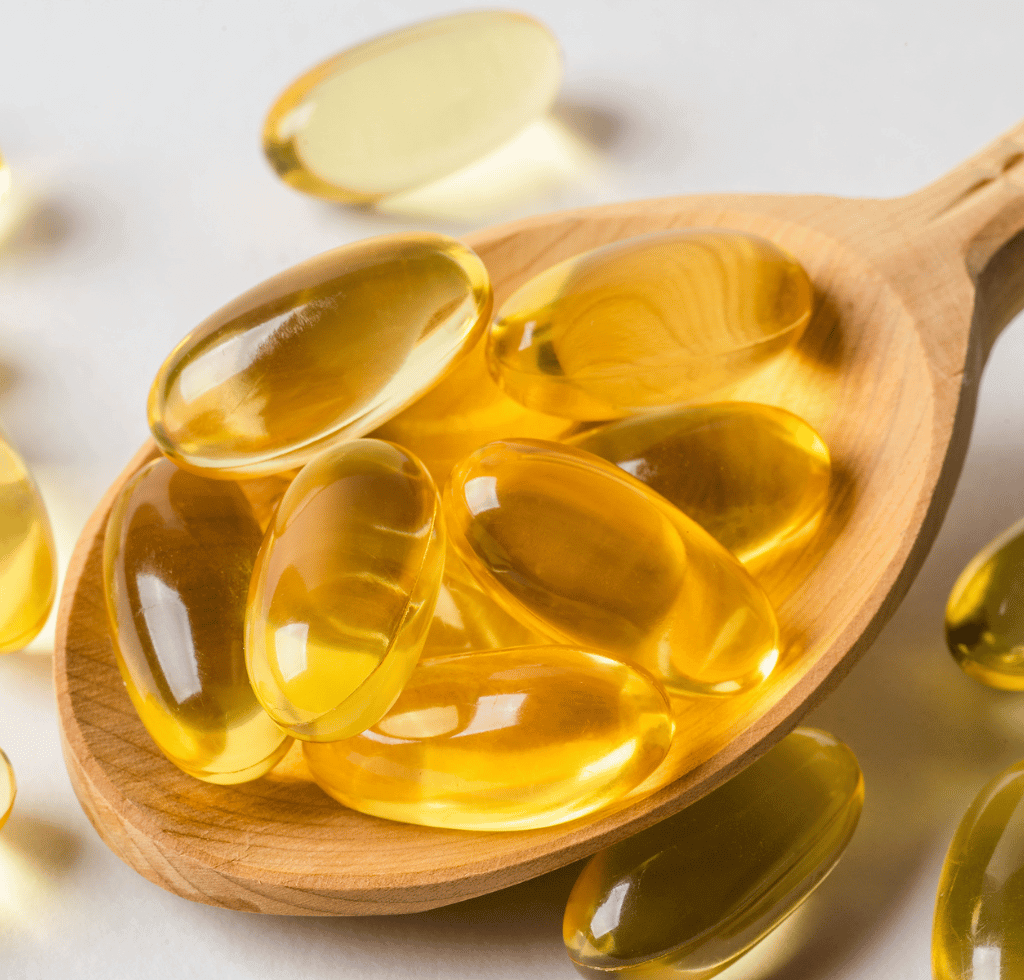
Modulating Arterial Inflammation
A comprehensive review in the ‘Journal of Lipid Research’ highlighted how Omega-3 fatty acids can modulate the inflammatory processes in the arteries, thus reducing the risk of plaque formation. This modulation is crucial in maintaining arterial health and preventing the conditions that lead to heart attacks and strokes.
Reduction in Triglycerides
Studies have shown that a daily intake of 2-3 grams of Omega-3s can result in a significant reduction, about 25-30%, in triglycerides. These fats are closely linked to heart disease, and their reduction is a key benefit of Omega-3 intake.
Cognitive and Joint Health Benefits
The benefits of Omega-3s extend to cognitive and joint health as well. They have been shown to improve brain function and are essential for maintaining joint fluidity, reducing stiffness, and ensuring overall physical well-being.
Sources and Incorporation into Diet
Rich sources of Omega-3s include fatty fish like salmon, mackerel, and sardines. For instance, a 3.5-ounce serving of wild-caught salmon can provide up to 2.6 grams of Omega-3s. For those seeking plant-based options, flaxseeds, chia seeds, and walnuts are beneficial, primarily providing ALA, which the body can convert into EPA and DHA, albeit in limited quantities. Including these food sources in your diet can aid in maintaining a balanced inflammatory response, a cornerstone of heart health and overall wellness.
5. Niacin (a B Vitamin): Lipid Management and Cardiovascular Health
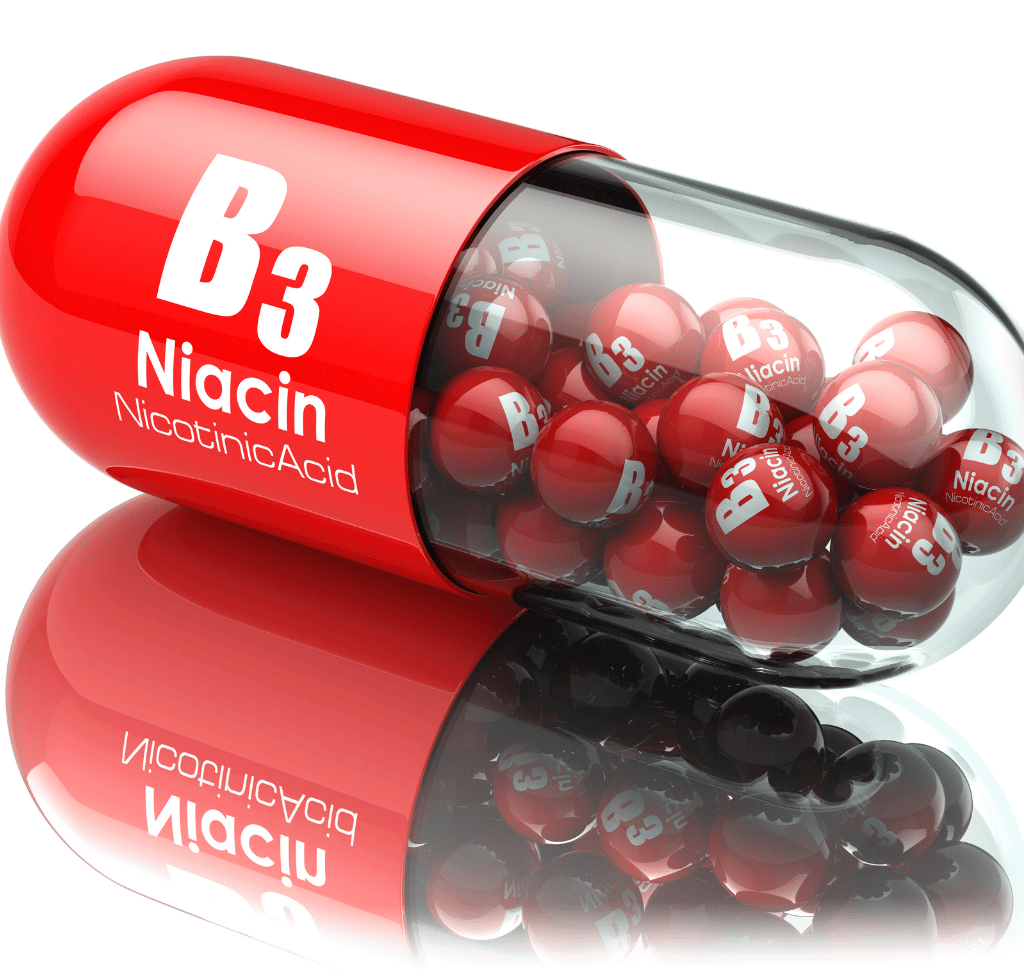
Ranked at number 5, Niacin, also known as Vitamin B3, is a powerhouse when it comes to cardiovascular health. Its ability to positively alter lipid profiles makes it a key player in heart health management. According to research, including a study from the ‘Journal of Clinical Lipidology,’ Niacin can significantly impact cholesterol levels – reducing LDL (low-density lipoprotein) or ‘bad’ cholesterol by up to 25%, while increasing HDL (high-density lipoprotein) or ‘good’ cholesterol by as much as 35%.
This rebalancing of cholesterol levels is essential in reducing the risk of arterial plaque buildup, which can lead to atherosclerosis.
Reducing Triglycerides
Furthermore, Niacin has shown effectiveness in lowering triglycerides by up to 50%, adding another layer of cardiovascular protection. By controlling these lipid levels, Niacin helps maintain a healthy balance, crucial for preventing arterial calcification and heart disease.
Sources and Recommended Intake
Niacin is found in a variety of foods, including turkey breast, chicken breast, peanuts, and mushrooms. For instance, crimini mushrooms offer about 5.2 mg of Niacin per cup. The daily recommended intake for adults is approximately 14 to 16 mg, which can generally be met through a balanced diet. However, individuals with high cholesterol or those at risk of heart diseases might need higher doses, under medical supervision.
4. Potassium: Regulating Heart Rhythm and Blood Pressure
At number 4, Potassium is an indispensable mineral for overall heart health. Its role in regulating heart rhythm and blood pressure is critical. Studies, including one published in the ‘Archives of Internal Medicine,’ have shown that increased dietary potassium intake is linked to a lower risk of stroke-related mortality – by up to 20%.
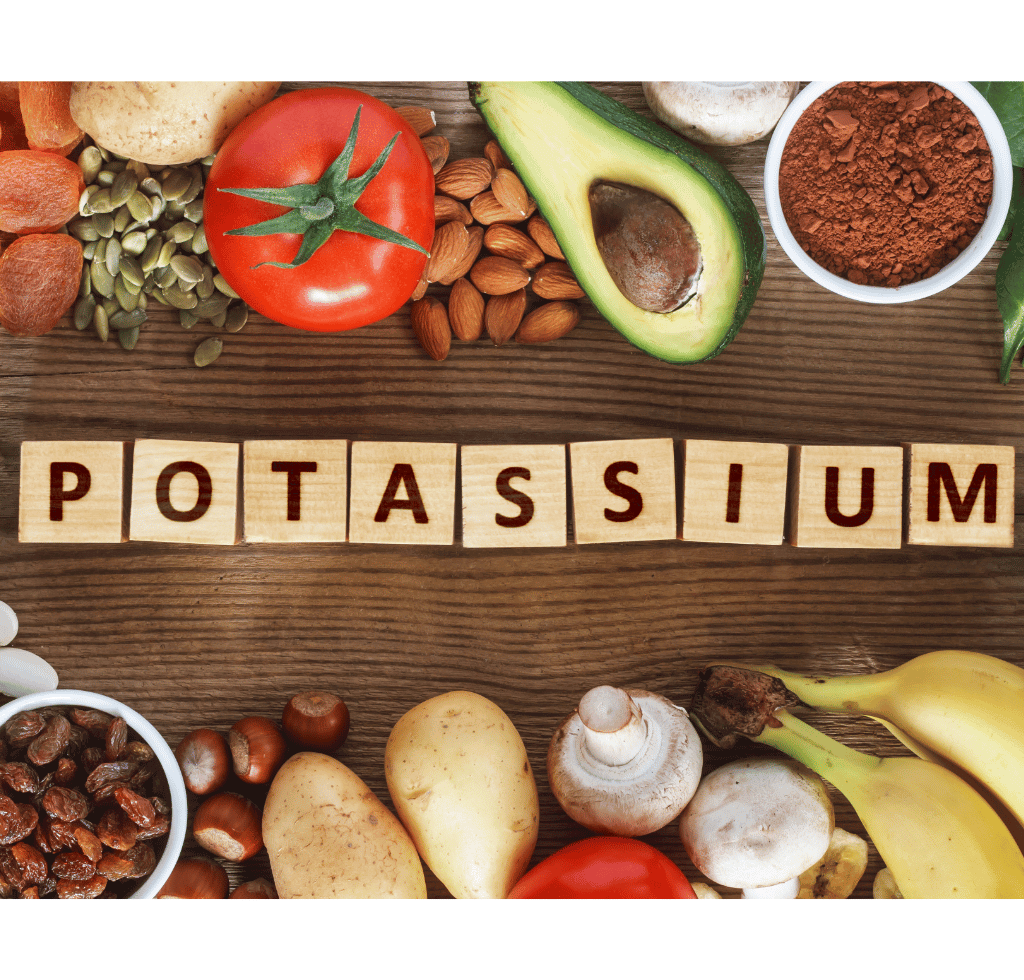
Potassium helps balance sodium levels in the body, maintaining healthy blood pressure and reducing the risk of calcium plaque buildup.
Vascular Health and Recommended Intake
Potassium also contributes to relaxing blood vessel walls, enhancing blood flow, and improving vascular health. The recommended daily intake for adults is about 4,700 mg. Rich sources include avocados, sweet potatoes, and spinach. For example, avocados provide roughly 975 mg per fruit, while a medium sweet potato offers about 950 mg. Individuals with certain health conditions, like kidney disease, should consult healthcare providers for tailored advice on potassium intake.
3. Magnesium: Preventing Arterial Calcification
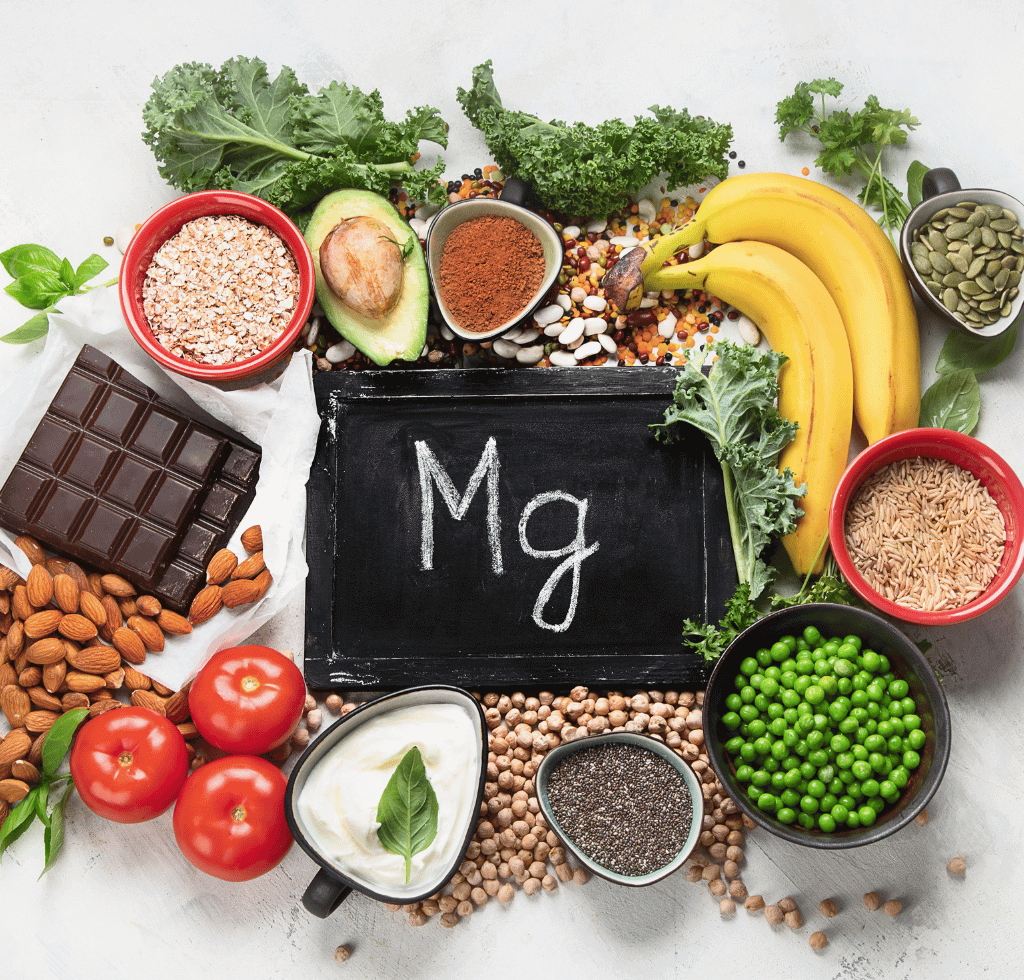
Coming in at number 3, Magnesium plays a significant role in preventing calcium buildup in the arteries. A study in the ‘American Journal of Clinical Nutrition’ highlighted a direct correlation between dietary Magnesium and arterial health. Researchers found that for every 100 mg per day increase in Magnesium intake, there was a 22% decrease in coronary artery calcification.
Benefits for High-Risk Groups
This mineral is particularly beneficial for people with an increased vulnerability to heart diseases, such as those with chronic kidney disease. For example, patients supplemented with 350 mg of Magnesium daily exhibited a slower progression of arterial calcification compared to a control group.
Sources and Daily Intake
Magnesium is abundant in foods like almonds, spinach, pumpkin seeds, chia seeds, and dark chocolate. Regular consumption of these foods is essential for heart health, with the recommended daily intake for adults ranging from 320 to 420 mg. By incorporating these Magnesium-rich foods into your diet, you can effectively combat calcium buildup in your arteries, promoting a healthier cardiovascular system.
2. Vitamin D3: A Key Factor in Arterial Health
Holding the second spot in our list, Vitamin D3 plays a vital role in preventing arterial calcification. Studies have found a significant correlation between Vitamin D levels and the incidence of coronary artery calcification.
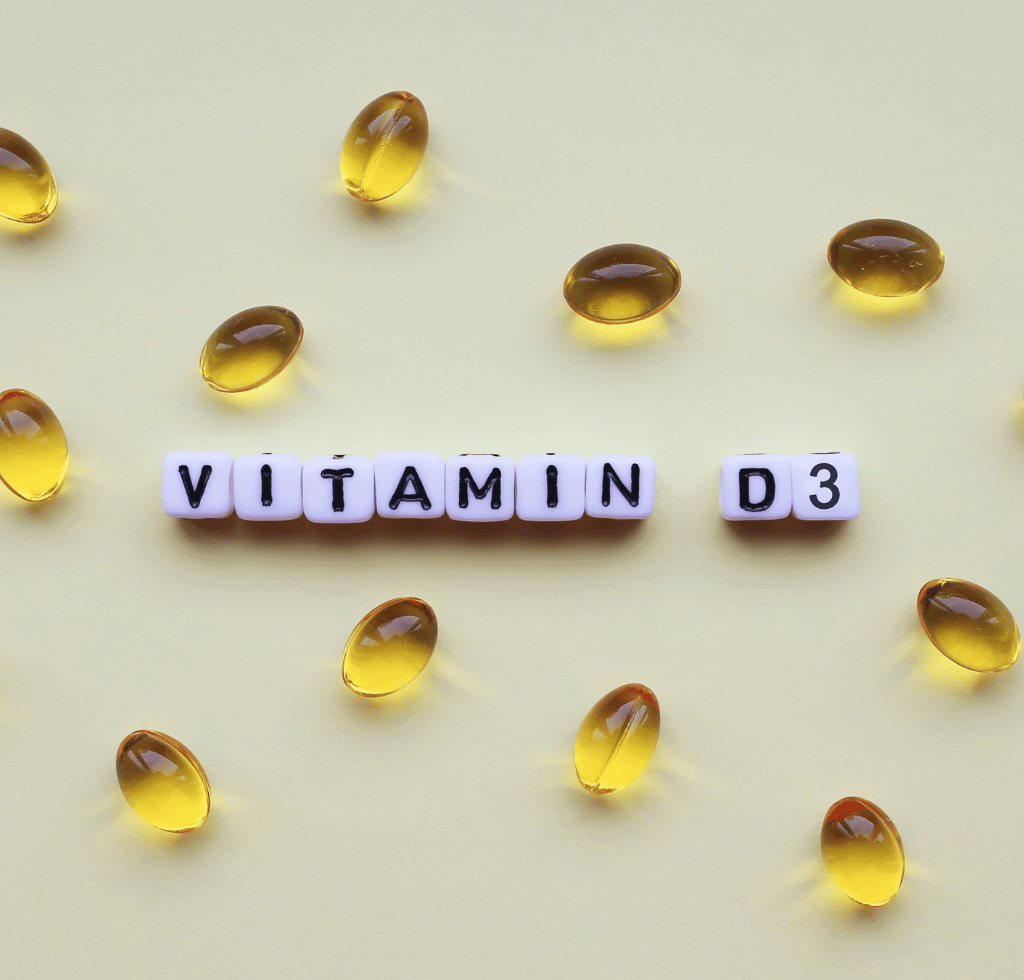
For instance, individuals with Vitamin D levels below 15 ng/mL have a 32% higher incidence of this condition compared to those with levels above 30 ng/mL. This stark contrast underlines the importance of Vitamin D3 in safeguarding our arteries against calcification.
Benefits of Supplementation
Supplementing with Vitamin D3, particularly at a daily dose of 4000 IU, has been linked to a considerable reduction in the progression of arterial calcification. Such a level of supplementation can significantly lower the risk of developing hardened and calcified arteries, often a precursor to various cardiovascular diseases.
Sources and Importance in Diet
Dietary sources rich in Vitamin D3, such as fatty fish, play a crucial role in boosting intake. For example, a 3.5-ounce serving of salmon provides up to 570 IU of Vitamin D, contributing notably to daily requirements. Egg yolks and fortified dairy products are also good sources. Besides diet, responsible sun exposure can naturally increase Vitamin D levels, aiding in the prevention of arterial calcification.
1. Vitamin K2: Directing Calcium Where It’s Needed
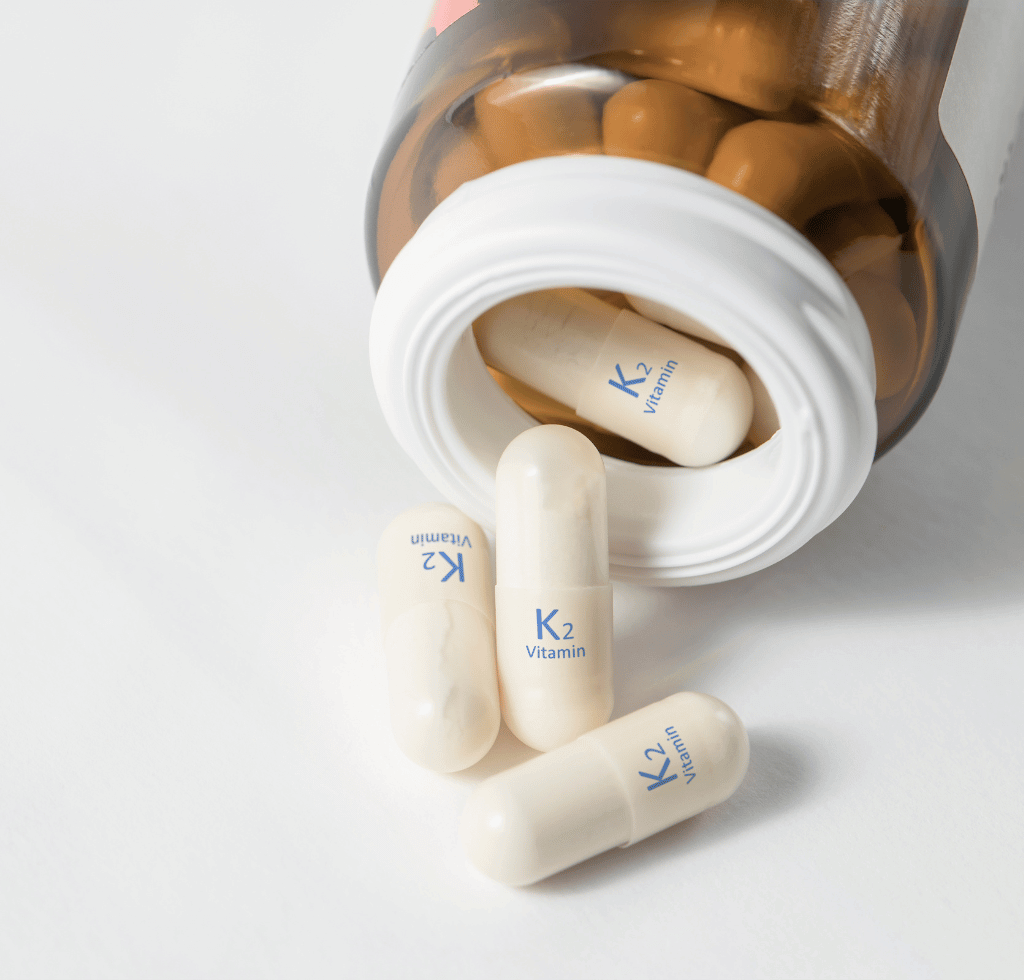
At the forefront of our list is Vitamin K2, distinguished for its pivotal role in cardiovascular health. It specifically directs calcium towards bones and away from arteries, where it can lead to calcification and plaque formation.
Studies, such as one published in ‘Thrombosis and Haemostasis,’ have shown that a high dietary intake of Vitamin K2 is associated with a significant reduction in arterial calcification and a decrease in cardiovascular mortality. Vitamin K2 activates proteins like Matrix GLA protein (MGP), which prevent calcium from depositing in artery walls, reducing the risk of atherosclerosis.
Reducing Arterial Stiffness and Enhancing Flexibility
Vitamin K2 not only slows down vascular calcification but also improves arterial elasticity. This benefit was highlighted in a study involving postmenopausal women, where supplementation with 180 µg of Vitamin K2 daily led to improvements in arterial flexibility. This outcome suggests Vitamin K2’s effectiveness in reducing the risk of coronary artery disease.
Sources and Dietary Integration
Vitamin K2 can be found in certain fermented foods, with natto being a prime example, providing about 1100 µg per 100 grams. Other sources include certain cheeses, meats, and eggs. While Vitamin K1 is known for its role in blood clotting, Vitamin K2’s distinct function in cardiovascular health is increasingly recognized. For those on blood thinners like Warfarin, careful management of Vitamin K intake is advised. Consistent dietary intake and consultation with healthcare providers are recommended to avoid interference with medication efficacy.
Conclusion: Embrace the Power of Vitamins for Heart Health
As we conclude our journey through the world of vitamins essential for combating calcium buildup, it’s clear that these nutrients play an indispensable role in maintaining cardiovascular health. From Vitamin E’s antioxidant properties to Vitamin K2’s unique ability to regulate calcium distribution, each vitamin has shown its unique importance in preventing the calcification of arteries—a key factor in heart disease.
But knowledge is just the first step. The true power lies in action. By integrating these vitamins into our daily diet, whether through food sources or supplements, we can actively contribute to the health of our arteries and overall heart health. Remember, small changes in our diet and lifestyle can lead to significant improvements in our health.
Watch and Learn More To deepen your understanding and take the next step in your heart health journey, I encourage you to watch our informative video on this topic. It’s packed with visual insights and practical tips to help you seamlessly incorporate these heart-healthy vitamins into your daily routine.
Frequently Asked Questions
1. Can I rely solely on supplements for these vitamins?
While supplements can be beneficial, especially if your diet lacks certain nutrients, it’s generally recommended to obtain vitamins primarily through a balanced diet. Supplements should complement, not replace, a nutritious diet.
2. How quickly can I expect to see changes in my heart health after increasing these vitamins in my diet?
The impact of dietary changes on heart health can vary from person to person. While some may notice improvements within a few weeks, for others, it might take longer. Consistency and a holistic approach to health are key.
3. Are there any risks associated with high doses of these vitamins?
Yes, taking vitamins in excessive amounts can lead to adverse effects. For instance, high doses of Vitamin D can cause toxicity. It’s important to adhere to recommended dosages and consult with healthcare professionals, especially when considering high-dose supplements.
4. Can children and adolescents benefit from these vitamins for heart health?
Yes, children and adolescents can benefit from these vitamins, but their nutritional needs differ from adults. It’s important to follow age-appropriate dietary guidelines and consult a pediatrician before making significant changes to a child’s diet or starting supplements.
5. Should people with existing heart conditions take these vitamins?
Individuals with heart conditions should consult their healthcare provider before adding supplements to their regimen. Some vitamins might interact with medications or be contraindicated in certain heart conditions.
